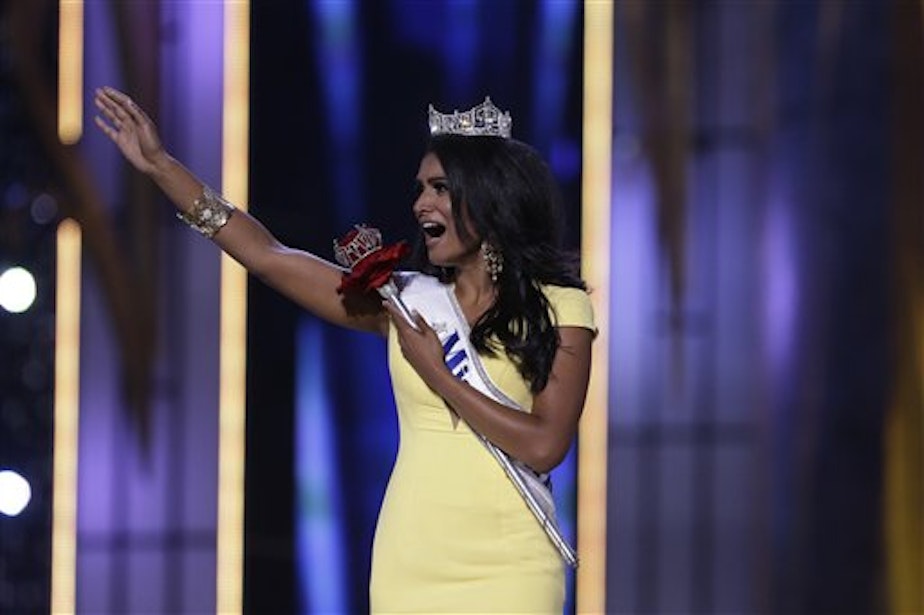There She Is: The History Of Miss America

Last Sunday Miss New York Nina Davuluri, 24, was crowned Miss America. She is the first winner of Indian descent and proudly displayed her heritage with a classical Bollywood fusion dance as her talent.
Controversy followed the coronation, as Twitter exploded with racist remarks condemning her victory. The online viewer poll favored Miss Kansas: the blonde soldier with the "Serenity Prayer" down her side.
However, Miss America is not new to creating uproar.
The pageant began in 1921 when Atlantic City was looking for a ploy to extend the tourist season beyond Labor Day. From that necessity came the invention of the Miss America pageant.
The event utilized the controversy that still surrounded beauty pageants, particularly in regards to the swimsuit portion of the competition.
A new manager took over in the 1930s and the pageant developed an elaborate system of rules to become more “respectable,” such as the contestants could not be married or divorced.
During the WWII years, the contest took on a new identity when it was officially labeled and marketed as a scholarship program to lend the pageant more credibility. However, the pageant was entrenched with racism and rigid ideals.
Segregation was officially outlawed from the main pageant after WWII, but the state pageants had their own rules for entry. It wasn’t until 1984 that Vanessa Williams became the first black woman to win.
The pageant has struggled to keep viewers and ratings over the years since its peak in the 1960s. This year it returned to Atlantic City in homage to its heritage as it attempts to stay relevant with shifting cultural norms.
Blain Roberts, California State University history professor, spoke on The Record on September 17. In response to the social media backlash against Davuluri, she said, “Not all Americans are comfortable with a diverse nation and they look to Miss America to be the embodiment of who they are and they don’t think that America should be so inclusive.”
For her part, Davuluri said in her first press conference after winning, "I'm so happy this organization has embraced diversity. I'm thankful there are children watching at home who can finally relate to a new Miss America."
Produced by Hannah Burn.

